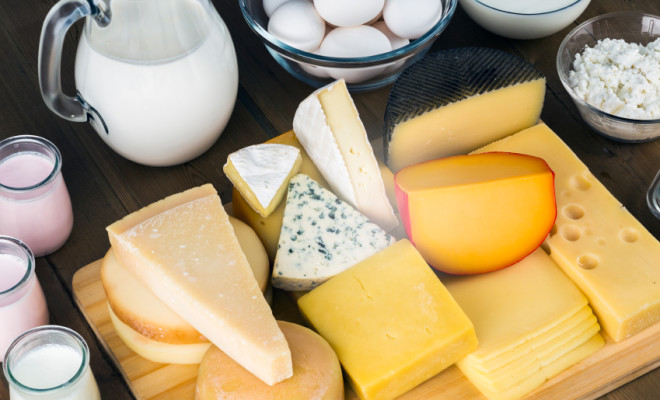
History of Cheese and Online Cheesemaking Course Jakarta
October 19, 2022For thousands of years, cheese has been an essential part of the human diet, helping us survive and thrive and live in balance with nature. That’s why it’s important to know the benefits of taking an online cheesemaking course Jakarta. Why? Read on to learn why, for most of us, cheese is a welcome and delicious part of a balanced diet.
1. Cheese full of vitamins and minerals
Cheese is packed with calcium. It is also very high in vitamin D, which not only helps us all fight the coronavirus, but also helps our bodies absorb that calcium, along with folic acid, A, B2, B12, and K2. What’s more, when taken with calcium, vitamins K2 and D3 are excellent for protecting your bones, brain and heart. Cheese contains all three, and cheese made from the milk of grass-fed animals has been shown to have higher levels of vitamin K2.
2. Cheese is a great source of non-meat protein
We firmly believe that we all need to talk more about how great cheese is as a source of protein and along with all its other benefits. Cheese is a great option for those of who you are trying to maintain a good body composition.
3. The fat in cheese is good for you and helps your body absorb all the vitamins and minerals
When you eat delicious cream cheese, you are also consuming conjugated linoleic acid, a fatty acid and anti-cancer and metabolism-boosting agent. These fatty acids have all sorts of additional health benefits, they can even help you maintain your weight.
Other Benefits of Cheese and Online Cheesemaking Course Jakarta
4. Online cheesemaking course Jakarta, cheese is better for gut microbiome
A healthy microbiome is essential to maintaining our overall health. A study that investigated the riddle of why French people have relatively low rates of heart disease and obesity despite eating 20 kg of cheese per person per year. The study found evidence of higher levels of butyrate and propionate in the stools of participants who ate full-fat cheeses. This is seen as evidence that cheese has a positive impact on the gut microbiome although this is a small but promising study.
5. Cheese is good for your teeth
A study conducted by dentists showed that eating cheese can lower the risk of having fillings on cavities. Different groups were tested, one consuming milk, one consuming sugar-free yogurt, and another consuming cheese, the pH balance in different areas of their mouth was tested before and after consumption.
A pH lower than 5.5 can put your teeth at risk of erosion due to the acids that build up in your mouth. While the group that drank milk, and ate sugar-free yogurt showed no significant changes, the group that ate cheese, chewed it for 3 minutes, experienced an increase in pH levels which is good for your teeth.
6. Cheese is best for the risk of osteoporosis
Milk which is high in calcium means that it is a great food for reducing the risk of developing osteoporosis. And dairy products, being a natural source of calcium are a better choice than calcium supplements which can pose a risk of heart problems.
High-quality randomized clinical trials have proven that dairy products are effective across the age spectrum. Also, the combination of calcium with vitamin D, both of which are high in dairy products, has been shown to be effective.
Additional Benefits of Cheese and Online Cheesemaking Course Jakarta
7. Cheese makes you feel good
Tyrosine is a naturally occurring amino acid found in cheese, which when consumed by us makes us feel satisfied. When metabolized in the body, it helps produce good mood-boosting chemicals such as dopamine which controls your brain’s reward and pleasure centers, thereby making you feel good.
8. Cheese can connect us to our environment
Cheese is a natural food that comes from animal milk which is then processed by skill into various kinds of delicious and highly nutritious human food.
Respecting animals and understanding the origins of milk help us stay connected to nature and the gifts it gives us. In a world moving toward more processed foods, it’s worth reflecting on the ancient gift of cheese and the relationship between land, animals, and people it symbolizes.
Learn where your food comes from, that’s where it comes from. In the case of cheese, it will take you straight back to a nature that has been in balance for thousands of years.
9. Even lactose intolerant people can enjoy cheese
Those who are lactose intolerant can still eat cheese, but choose carefully. Good choices are hard and aged cheeses such as Swiss cheese, parmesan and cheddar because the cheese is lower in lactose. Other low-lactose cheese options include cottage cheese, or feta cheese made from goat’s or sheep’s milk. If you are lactose intolerant and want to experiment with some cheeses, it is recommended that you keep a diary to keep track of what and when so you can see if the cheese suits you or not.
10. Cheese is good to share
Last but not least, cheese is delicious and great for connecting people. This is the food we collect and relate to; think of long after-dinner conversations around a cheese board, or afternoons at family gatherings around a crowded table. All these social activities are good for us as humans. Cheese, when respected, understood and enjoyed, brings us all together.
Here’s information about the benefits of cheese and why it’s so important for your health that if you can’t buy one, you can learn how to make cheese by following the online cheesemaking course Jakarta or anywhere in Indonesia.

